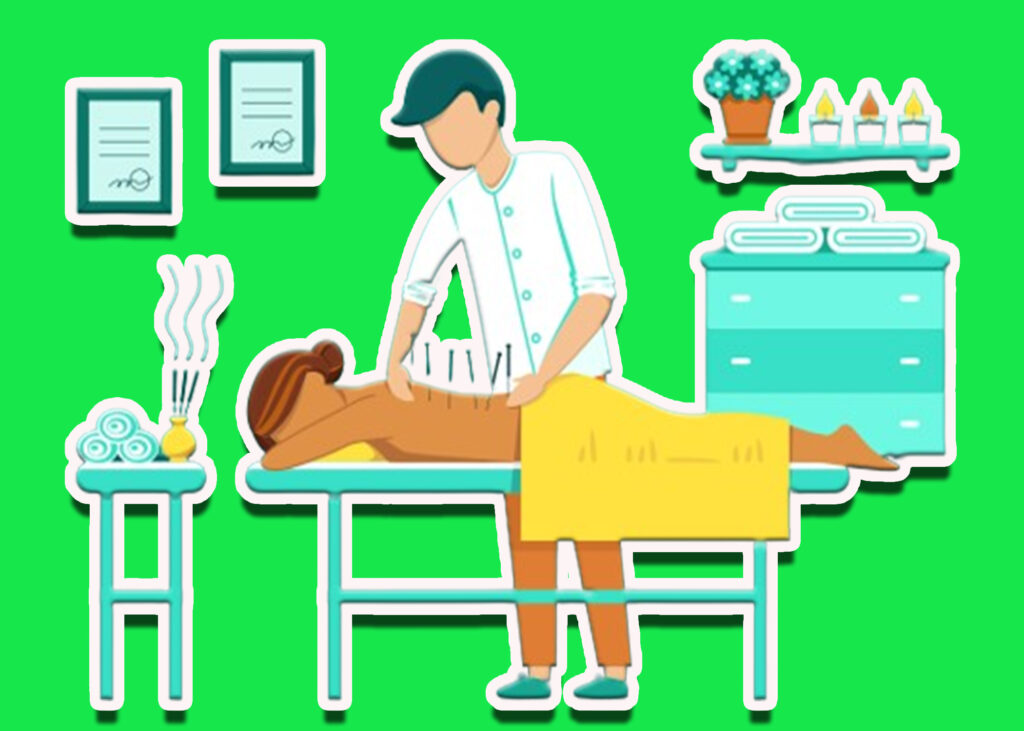Most insurance plans can cover acupuncture, but it varies depending on the insurance provider and plan details. A growing number of insurance companies now cover acupuncture as a supplemental therapy, since it has become more well-known in recent years.

Additionally, a recommendation from a primary care physician may be necessary for some plans, while others may include acupuncture as part of their wellness benefits. It is essential to establish whether acupuncture is covered by insurance and under what conditions by contacting your specific plan. Furthermore, inquire about potential out-of-pocket expenditures and if the acupuncturist takes your insurance plan by calling the practitioner’s office.
What Is Acupuncture
Acupuncture is a medical treatment developed in China that is divided into various forms. All of them include the use of subcutaneous needles to stimulate bodily regions and relieve symptoms. Also, acupuncture evolved throughout time. In comparison to the previous version, it is safer.
For instance, practitioners use safer disposable needles rather than reusing silver and gold needles. Moreover, to enhance outcomes, practitioners nowadays can additionally use heat and low electrical impulses on needles.
What Does Acupuncture Treat
Acupuncture has few harmful adverse effects and is beneficial for treating a wide range of illnesses, ailments, and symptoms. The procedure, which is based on traditional Chinese medicine, entails a practitioner making tiny skin incisions at certain bodily locations.
The goal is to activate the central nervous system to promote healing, alleviate illness, and reduce discomfort. The American Academy of Medical Acupuncture states that the following conditions can be treated with acupuncture:
- Nausea and other adverse effects of cancer therapy.
- Giving up smoking.
- Seasonal allergies.
- Arthritis or discomfort in the knees.
- Back discomfort.
- Ache in the neck.
- Additional pain management is needed for persistent low back pain.
Generally, acupuncture has been demonstrated in several trials to be beneficial for anxiety, sciatica nerve pain, and fertility.
What Are the Insurance Requirements for Acupuncture
The requirements for acupuncture vary between the plans. However, your insurance provider will most likely require you to see an acupuncturist who is licensed in your state. Also, you are likely limited to a certain amount of visits each year. Furthermore, your insurance plan may only cover acupuncture for specific diseases, such as persistent low back pain.
Is Out-of-Network Acupuncture Covered by Insurance
Out-of-network acupuncture coverage depends on your insurance plan. While certain insurance companies may pay for some components of out-of-network acupuncture, the benefits may be limited compared to seeing an in-network practitioner.
If your plan does not cover out-of-network acupuncture, you will be charged for the full cost of the sessions. Furthermore, remember that if you choose to see a provider outside of your network, you may be forced to pay a higher copayment or deductible, as well as a larger out-of-pocket maximum, before your insurance coverage begins.
What Are the Risks of Acupuncture
A professional practitioner can help you minimize the hazards associated with acupuncture. However, if therapy is not administered correctly, it might have major negative effects. Infection, hemorrhage, organ punctures, and damage to the central nervous system are possible side effects.
Acupuncture should be avoided if you:
- Possess a pacemaker. Electrical impulses may cause problems for their function.
- You are carrying a child. Acupuncture may occasionally induce labor and result in an early birth.
- Take blood thinners or suffer from bleeding issues. These may raise the possibility of needle-insertion-related bleeding or bruises.
What to Expect During Treatment
There is nothing extra you need to do to get ready for your session. Your initial treatment will involve inquiries from the practitioner about your symptoms and maybe an examination of the painful areas of your body.
Throughout the process, there is little pain. This is how it works.
- During the session, you will lie on a cushioned platform while wearing a robe, sheet, or clothing.
- The medical professional will explain where the needles will be put during the process.
- Once you are comfortable, the medical expert will inject five to ten little needles beneath your skin. There may be a slight sensation or soreness.
- While you relax, the practitioner may adjust the needles, provide heat, or utilize gentle electrical pulses.
- The practitioner will remove the needles after ten to twenty minutes.
Several therapies may be necessary to help you manage your symptoms. As many as six or eight treatments may be required. Your disease and symptoms will decide how often you need therapy.
Is Acupuncture Right for You
Your condition might not be a good fit for acupuncture. The way to determine whether you might benefit from therapy is as follows:
Consult your physician
Only acupuncture should be used to supplement, not to replace, the medical advice of your doctor. If you’re not sure acupuncture is right for you, your doctor can assist.
Find medical professional
Apply the same caution that you would while selecting a conventional medical provider. Consult a health directory, read reviews, or get a recommendation from your physician.
Some people say they feel better after treatment. Some people claim to be more energetic. It may take a few days before your symptoms begin to ease. However, if they do not improve within a few weeks, you may need to try an alternative course of therapy.

